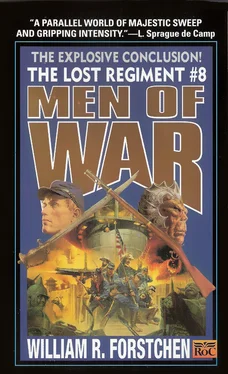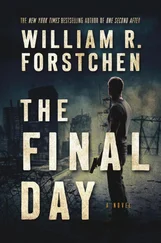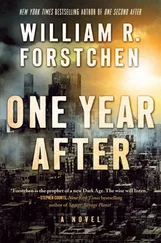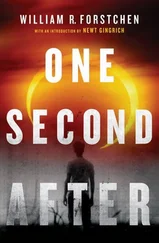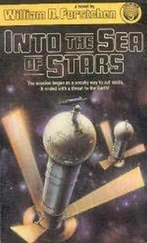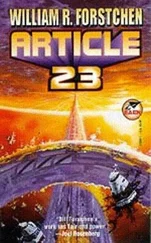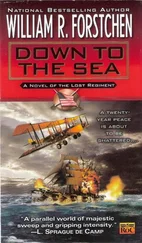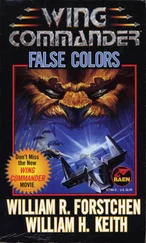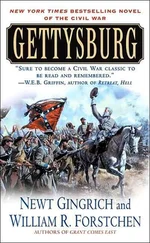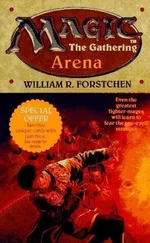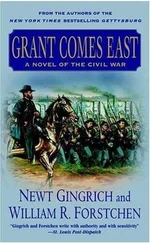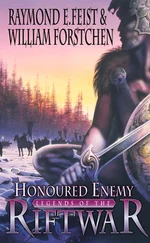William Forstchen - Men of War
Здесь есть возможность читать онлайн «William Forstchen - Men of War» весь текст электронной книги совершенно бесплатно (целиком полную версию без сокращений). В некоторых случаях можно слушать аудио, скачать через торрент в формате fb2 и присутствует краткое содержание. Год выпуска: 2013, Жанр: Фантастика и фэнтези, на английском языке. Описание произведения, (предисловие) а так же отзывы посетителей доступны на портале библиотеки ЛибКат.
- Название:Men of War
- Автор:
- Жанр:
- Год:2013
- ISBN:нет данных
- Рейтинг книги:3 / 5. Голосов: 1
-
Избранное:Добавить в избранное
- Отзывы:
-
Ваша оценка:
- 60
- 1
- 2
- 3
- 4
- 5
Men of War: краткое содержание, описание и аннотация
Предлагаем к чтению аннотацию, описание, краткое содержание или предисловие (зависит от того, что написал сам автор книги «Men of War»). Если вы не нашли необходимую информацию о книге — напишите в комментариях, мы постараемся отыскать её.
Men of War — читать онлайн бесплатно полную книгу (весь текст) целиком
Ниже представлен текст книги, разбитый по страницам. Система сохранения места последней прочитанной страницы, позволяет с удобством читать онлайн бесплатно книгу «Men of War», без необходимости каждый раз заново искать на чём Вы остановились. Поставьте закладку, и сможете в любой момент перейти на страницу, на которой закончили чтение.
Интервал:
Закладка:
“The year, this year was a gift, Andrew. He came back to lead us one last time. Now the job is finished.”
Andrew nodded, unable to speak.
He stepped out of the room, and Kathleen stopped him.
“Andrew.”
“Yes?”
She nodded to Casmir, who was holding a package.
“I brought this with me; I thought you might want it.”
Casmir opened the package. Inside was Andrew’s weather-stained uniform jacket, his Medal of Honor still pinned to the breast.
He nodded in agreement, and Casmir and Kathleen helped him remove his simple brown coat. The feel of the tight uniform somehow reassured him, and he wordlessly nodded his thanks.
Holding Kathleen’s hand, he walked down the corridor, passing the reception room where he and Hans had first stood before the Boyar Ivor, and at last gained the steps to the White House.
Out in the square there was wild rejoicing, and though he was filled with grief, he could feel their joy as well. They had made the decision to stand and fight, redeeming their souls at that moment, and now they had discovered that it was not just their souls that had been redeemed, but their lives as well.
At the sight of him the cheering redoubled into a thunderous tumult, so that it seemed as if the very heavens would be torn asunder.
He stood silent, and then gradually the wild celebration died away. As if sensing his thoughts and his pain, a new chant emerged, “Hans, Hans, Hans.”
There was no rejoicing in it, only a deep and reverent respect.
Alone he stood, eyes turned heavenward, imagining the ship Kal had dreamed of.
“Good-bye, Hans,” he whispered. “Good-bye and thank you, my comrade, my friend.”
Chapter Fifteen
“As he died to make men holy, let us die to make men free.
The final refrain of the song echoed across the open steppes.
Colonel Andrew Lawrence Keane, commander of the Army of the Republic, stood stiffly at attention as the last chorus drifted away.
The ceremony was nearly done. All the dignitaries had spoken, as had he. Now there was only the final ritual.
A company of soldiers, cadets of the 35th Maine, came to attention, the first rank making a sharp half turn.
“Present … fire!”
The volley made him start. There was a momentary flash of memory, the first volley crashing into his line at Antietam.
“Present … fire!”
He lifted his gaze. The ruins of what was now simply called the Foundry were before him. In front of it was the cemetery, neat orderly rows with simple stone slabs, thousands of them. Some were for single bodies, most marked mass graves, the thousands upon thousands who had died in the final battle of the war.
“Present … fire!”
In the middle of the vast graveyard there was a lone cross. Some had wanted a towering monument, others a vast mausoleum, but his quiet insistence on what he knew his friend would have wanted had swept away all the grandiose proposals. Hans Schuder had tasted slavery, rose up, and cut free the chains, and then died coming back to liberate not just the people he called his comrades, but the world. To rest among those who had died with him that day was all the tribute he would want.
As the last volley died away, a lone bugler, concealed inside the ruins of the Foundry, blew the first notes of taps.
It was yet another ritual from the old world. It was a tune born of the Army of the Potomac, written by Dan Butterfield as nothing more than a signal for lights-out. Butterfield’s lullaby many had come to call it. Hans had once said he was partial to it, and Andrew now thought it would be a fitting gesture.
As the bugler hit the final high note, a shiver seemed to go through those assembled. He could hear President Kal choking back tears. The note echoed and died away.
“Stand, at ease!”
The order, given by a young Rus colonel who now commanded the 35th Maine, cut through the air. Andrew lowered his hand from the salute, the boys of the 35th slapping rifles from the present salute down to at ease.
Andrew swept the assembly with his gaze. They were all here, having made the journey by rail from Suzdal to Roum, where the delegation of Roum senators and congressmen joined them. Then by rail all the way to Nippon, where yet more newly elected senators and congressmen joined in, and then finally to Chin.
It had been a year to the day since the ending of the war, and at last he had come to visit his friend and say a final farewell.
They had passed through the Roum lands devastated by the wars, and he was pleased to see new homes going up, tangled vineyards being cleared and replanted.
They had passed through the battlefields around Junction City, Rocky Hill, and the Shennadoah, and already monuments were going up to honor the regiments that had fought and died there. He had seen as well the orderly cemeteries at each place of battle and had stopped at each of them to offer his salute and his prayers.
There would still be four more. Tomorrow they would complete the long train ride and go to Xi’an, and from there take a boat to Carnagan, to visit the battlefield that still haunted Vincent, and from there to where Hans had made a stand in the retreat to Tyre, and, finally, a last stop at Tyre.
But this was the place that had been central to his tour of the battlefields of the war and the dedication of the cemeteries. The week before the Chin had held their first election, and Kal had made it a point to come to this place to witness the swearing in of the new senators and congressmen and congresswomen. Politics was even returning to normal, he realized. Kal had been up for reelection, and somehow it seemed like the admission of Nippon and Chin into the Republic didn’t quite come until after the votes had been counted and the Republican Party had swept back in. Though the way feelings were at this moment in the first heady days of peace, Kal had nothing to fear; every last citizen, Chin, Roum, Rus, and Nippon would have voted for another term.
The amusing part of the admission of the Chin though was that they had indeed elected several women to office. It was an action which delighted him, though the election had scandalized some of the more straitlaced from Roum and Rus. He had pointed out that in the Constitution there was nothing that said a woman could not serve thus, and it was Kathleen who triggered even more of an uproar with a statement in Gates’s Illustrated Weekly that there should be an amendment to the Constitution granting women the right to vote, and she planned to organize a movement to see that it was done.
So much in a year, he thought. Only this month the last of the Horde had been released by the terms of the treaty with Jurak and escorted to the border. A report had just come in as well that the remnants of the old Tugar Horde were joining them. So far there had been an uneasy peace, but he would feel far better when the expedition dispatched to make contact with those living a thousand leagues to the east returned with a report that the depredations of the Horde had indeed stopped along that distant border as well. Of the last of the horde clans, those who rode south and east of the Bantag and passed through the region half a dozen years ago there was no news; apparently they had simply ridden on, ignoring the conflict to the north. He sensed that someday they might have to be dealt with, but that was years, maybe even decades, off.
He had come to trust Jurak, having met with him twice in the months after the war, but unfortunately Jurak was a lone individual moving to break thousands of years of tradition. All reports indicated, though, that at least for now the moon feasts were finished, the riders of the Horde turning instead to hunting of the bison and the wool-clad elephants of the steppes.
Читать дальшеИнтервал:
Закладка:
Похожие книги на «Men of War»
Представляем Вашему вниманию похожие книги на «Men of War» списком для выбора. Мы отобрали схожую по названию и смыслу литературу в надежде предоставить читателям больше вариантов отыскать новые, интересные, ещё непрочитанные произведения.
Обсуждение, отзывы о книге «Men of War» и просто собственные мнения читателей. Оставьте ваши комментарии, напишите, что Вы думаете о произведении, его смысле или главных героях. Укажите что конкретно понравилось, а что нет, и почему Вы так считаете.
